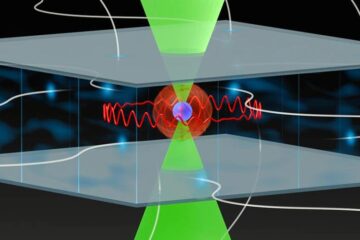Transcendental Meditation reduces the brain's reaction to pain

Twelve healthy long-term meditators who had been practicing Transcendental Meditation for 30 years showed a 40-50% lower brain response to pain compared to 12 healthy controls, reported by a latest NeuroReport journal article, published by Lippincott Williams & Wilkins (Vol.17 No.12; 21 August 2006:1359-1363). Further, when the 12 controls then learned and practiced Transcendental Meditation for 5 months, their brain responses to pain also decreased by a comparable 40-50%. www.neuroreport.com Current issue (Aug 9)
Transcendental Meditation could reduce the brain's response to pain because neuroimaging and autonomic studies indicate that it produces a physiological state capable of modifying various kinds of pain. In time it reduces trait anxiety, improves stress reactivity and decreases distress from acute pain.
According to Orme-Johnson, lead author of this research, “Prior research indicates that Transcendental Meditation creates a more balanced outlook on life and greater equanimity in reacting to stress. This study suggests that this is not just an attitudinal change, but a fundamental change in how the brain functions”.
Pain is part of everyone's experience and 50 million people worldwide suffer from chronic pain. Transcendental Meditation would have a long term effect in reducing responses in the affective component of the pain matrix. Future research could focus on other areas of the pain matrix and the possible effects of other meditation techniques to relieve pain.
Media Contact
All latest news from the category: Health and Medicine
This subject area encompasses research and studies in the field of human medicine.
Among the wide-ranging list of topics covered here are anesthesiology, anatomy, surgery, human genetics, hygiene and environmental medicine, internal medicine, neurology, pharmacology, physiology, urology and dental medicine.
Newest articles

Latest generation of self-dissolving stents
Magnesium implants support coronary arteries and keep them open. Constricted coronary arteries harbor dangers: Because the heart is not supplied with blood properly, this can lead to pain, cardiac arrhythmia,…

Stopping blood cancer
The MHH joint project TARGET-MPN is investigating why the disease persists and progresses in malignant bone marrow diseases from the group of myeloproliferative neoplasms despite targeted treatment. Haematopoietic stem cells…

Milestone in quantum simulation with circular Rydberg qubits
A team of researchers from the 5th Institute of Physics at the University of Stuttgart is making important progress in the field of quantum simulation and quantum computing based on…





















